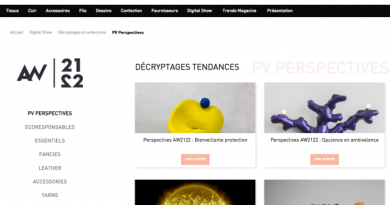Richemont Sales Rise 6% Amid ‘Normalization’ of Luxury Demand – WWD
LONDON – A waning appetite for luxury and growing macroeconomic pressures dented Richemont’s growth in the first six months of the year, with sales climbing 6 percent to 10.2 billion euros, and profit from continuing operations up 3 percent to 2.2 billion euros.
At constant exchange rates, sales in the six months to Sept. 30 were up 12 percent.
Richemont shares were down 6 percent to 105.55 Swiss francs in mid-morning trading.
That growth was bolstered chiefly by the jewelry division, where sales rose 10 percent at actual rates, and 16 percent at constant exchange at Buccellati, Cartier and Van Cleef & Arpels.
That growth came from most regions led by Asia Pacific, with performance “broad-based across product categories,” from silverware at Buccellati to high jewelry at all of the maisons, Richemont said. Cartier’s Santos and Tank watches and the Alhambra style from Van Cleef & Arpels collections performed particularly well in the period.
Richemont added that jewelry production capacity was enhanced with new facilities being built, acquired, or recently completed in Italy, France and Switzerland.
Sales in the specialist watch division were down 3 percent at actual rates and rose 3 percent at constant exchange, with operating results “significantly impacted” by the strong Swiss franc, according to the group.
Richemont said that sales in directly operated stores rose by high single digits at actual exchange rates “strongly mitigating contractions in the other channels.”
A. Lange & Söhne and Vacheron Constantin outperformed in the period as did collections such as the Riviera collection at Baume & Mercier; Reverso from Jaeger-LeCoultre, and Excalibur at Roger Dubuis.
The other businesses division, which includes the fashion and accessories maisons, fell by 1 percent at reported exchange, and rose 3 percent at constant rates.
Sales in fashion and accessories specifically were in line with the prior-year period, driven by retail and particularly strong performances at Alaïa, Delvaux and Peter Millar, Richemont said.
The group noted that Montblanc’s leather category was benefiting from redesigned collections by Marco Tomasetta, while Dunhill was gaining fresh traction under the creative leadership Simon Holloway following his positive impact at Purdey.
Yoox Net-a-porter group, which is set to sold to Farfetch and Alabbar, saw sales decline by 13 percent at actual exchange rates and by 10 percent at constant exchange rates. Richemont now classifies YNAP as a discontinued operation.
In the key Asia-Pacific region, sales were 14 percent higher than during the corresponding period last year, fuelled by a 23 percent progression in Mainland China, Hong Kong and Macau combined.
The spike in sales growth was the result of the lifting of pandemic-related restrictions at the start of the year and the related resumption of travel in the Asia-Pacific region specifically. Sales in Japan grew by 2 percent, reflecting “the continued return of tourism, notably from Mainland Chinese,” on the back of a weak yen.
By contrast, the Americas region contracted by 4 percent, due chiefly to lower wholesale sales and a relatively weak U.S. dollar over the period.
Europe saw sales increase 3 percent year-on-year despite challenging comparatives with the previous year, Richemont said.
Johann Rupert, founder and chairman of Compagnie Financière Richemont, said that while the first half had started strongly and “beyond our expectations,” growth eased in the second quarter as inflationary pressure, slowing economic growth and geopolitical tensions began to affect customer sentiment.
Those headwinds were made worse by strong comparatives with the same period last year, he added.
“Consequently, we have seen a broad-based normalization of market growth expectations across the industry. The positive news is that a soft-landing scenario seems to be prevailing in major economies with still higher growth expected from China, which should benefit from stimulus measures,” Rupert noted.
He was positive about the future, adding that Richemont had maintained “financial discipline” during the first six months, allowing for targeted investments and a further strengthening of operations.
“Our solid balance sheet enables us to manage for the long term, investing in a discerning manner in talent, research and development, production, distribution and sustainability initiatives. I have every confidence in the long-term prospects of our group,” Rupert said.
Operating profit for the six months decreased by 2 percent to 2.7 billion euros. Operating margin amounted to 26 percent. Richemont said profitability was “significantly impacted by negative foreign exchange developments during the period. At constant exchange rates, operating profit grew by 15 percent.”
Richemont added that the 55 million euros increase in profit for the period reflected a 150 million euros reduction in net finance costs such as foreign exchange losses linked to the group’s investment in Farfetch.
At the end of the six months, the company had 5.8 billion euros in net cash on its books, compared with 4.8 billion euros in the corresponding period last year.
Analysts have widely been anticipating a slowdown in luxury generally, and at Richemont specifically.
As reported, last month RBC downgraded Richemont’s share price target to 130 Swiss francs from 170 Swiss francs for the next 12 months based on new, lower earnings estimates.
For fiscal 2024, the current financial year, the bank reduced Richemont’s revenue estimate by 2 percent and EBIT, or earnings before interest and taxes, by 5 percent.
The bank said that Richemont could be particularly vulnerable to the normalization in luxury spending given the higher price points of fine jewelry “and, arguably, the higher feel-good factor required” to purchase it.
Richemont, owner of brands including Cartier, Van Cleef & Arpels and IWC, had already begun to feel the impact of waning demand and the increasingly brutal macro environment earlier this year.
Following Richemont’s first-quarter results announcement in July, shares closed down more than 10 percent at 137.90 Swiss francs after the luxury goods giant reported a 2 percent contraction in sales in the key Americas region, and a miss on projections in Asia Pacific.





